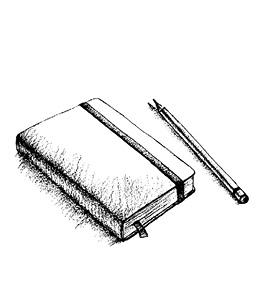
While deeply embedded in Paris I awoke from a strenuous post-lunch nap and wondered if we humans had a more than nominal connection to the universe. It was as if the gods had decided to burn a giant question mark on my mental lawn. “Wherefore art thou, Jimmy?” I asked myself. Modern man is always at the crossroads when he should be doing something sensible like floating in a boat on a river. The Seine just down the street didn’t present an immediate possibility so I had a hasty cup of coffee and turned to the alternative that God has always led me to in a lifetime of bitter conundrums. Wine. Yes, gentle reader, wine. When troubled, just have a glass of wine. The truest thing Ernest Hemingway ever said was “Good is what you feel good after.”
However, a large step away from the delicious world of sensation is the world of criticism. Whether you are drinking wine or reading a book, quizzical man who has no particular idea why he is alive will ask himself if the wine he is drinking or the book he is reading is any good. Here I must present my trump card rather than waiting for the questionable timing of conclusions. I recently read a fine book by Lawrence Osborne, The Accidental Connoisseur: An Irreverent Journey Through the Wine World, wherein he quotes the garagiste Pierre Siri as saying, “You can’t really describe wine, you can only remember it,” to which I would add, you can’t really describe literature, you can only experience it.
Now we are within the desperately familiar arena of human limitations. I recall that one night in Key West I read Knut Hamsun’s novella Victoria in a single sitting and actually sobbed when I put the slender volume down. The first glass of a truly great wine can be as vivid and palpable as sex and, in truth, quite as indescribable unless you wish to resort to “We fell back on great waves of nothingness.”
The existence of much wine and literary criticism seems to presume a stringent orthodoxy, the possibility that there is a perfect scorecard on which one may rate literature or wine, or weigh them on one of those precise gram scales so favored by cocaine dealers in the distant past. This bespeaks the immodesty of the critic, or the reductive capabilities of anyone who shrinks the world to fit into the briefcase of his wobbly ego.
Of course, one occasionally reads a literary or wine critic whose taste or palate is generally admirable. As I’ve often said, Ezra Pound limited his trust to anyone who had created a notable work. Perhaps this is a tad mean-minded. In literature in our time we’ve had Edmund Wilson, Randall Jarrell, and more recently George Steiner who sense an unnerving level of pomposity. I’m just the farmer, not the middleman or retailer. As the author of twenty-five books or so I’ve had hundreds of reviews, essays, even books, written on my work to which I pay minimal attention. The goose trying to lay golden eggs shouldn’t be using a mirror to look at its butt.
The human mind loves to posit absurdities. You can also easily bite off your own fingers, such is the dark power of the human mouth. But this is not to say that wine and literary criticism is without a specific value. This would be to doubt the necessity of plane or train schedules or those teachers who, however unpleasant, made us aware of the range of human mental activity. I recall my excitement on first reading Brillat-Savarin, Lichine and Parker, Edmund Wilson and George Steiner. It would be dumb of me not to check in with Gerald Asher, Frank Prial, Hugh Johnson, or Sven Birkerts. We just shouldn’t confuse educated comment with primary experience.
Meanwhile in Paris I missed the eclipse of the moon because I was inside Assiette Lulu drinking a St. Estèphe, a wine that causes moon dreams. I’m headed for an actual thirty-seven-course lunch in Burgundy with, naturally, at least fifteen wines. I wonder idly if a doctor will be in attendance. Life would be impossible without wine, fishing, and dogs.
On our long circular journey to this lunch which in the future should be an Olympic event we traveled south of Dijon and Beaune passing my beloved Clos de la Roche though I’ve never owned a bottle, only sponged on those whom God has given fat wallets. We stayed at the exquisite Villa Louise in Aloxe-Corton and dined at a roadhouse named La Regalade, a lovely simple supper of pâté, frogs’ legs, and sweetbreads drinking a Nuit-St.-Georges and a Vosne-Romanée. At dawn or a few hours thereafter we sped toward Marseille in order to have the excellent bouillabaisse at Michel’s. Next day Lulu Peyraud gave us an exquisite lunch at Domaine Tempier (urchins, a broth of coquillage, lamb leg done in the fireplace, pied paquets done Provençal style).
This little travelogue is offered for a single purpose. With good food and company the numerical absurdities become more so, a “90” wine becoming a “95” because wine doesn’t exist in the vacuum of charts but at the center of our lives. The professor who marked your essay 78 after a bad dinner may have given it a 91 after a good lunch. A book that is thought a classic in the western states is utterly ignored in Gotham’s verminish cement canyons. To rate either wine or literature as if we were scientists is frivolous. Both are in the humanities, not the sciences. More later.